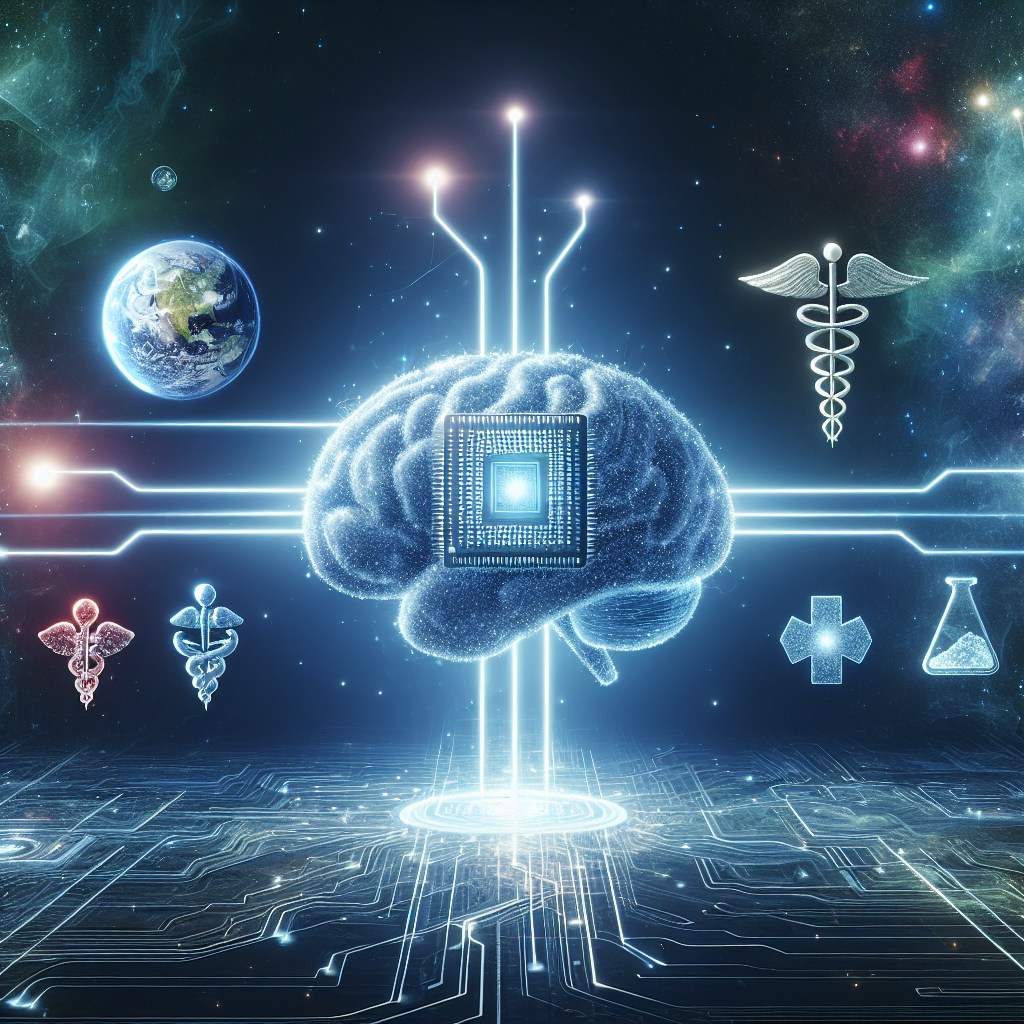The Role of AGI in Solving Global Challenges: Climate Change, Healthcare, and More
Artificial General Intelligence (AGI) is a form of artificial intelligence that is capable of understanding and learning any intellectual task that a human being can. AGI has the potential to revolutionize the way we approach and solve complex global challenges, such as climate change, healthcare, poverty, and more. In this article, we will explore the role of AGI in addressing these pressing issues and how it can be leveraged to create a better future for humanity.
Climate Change
Climate change is one of the most pressing global challenges facing humanity today. The rise in global temperatures, extreme weather events, and sea-level rise are all symptoms of the underlying problem of greenhouse gas emissions. AGI can play a crucial role in helping us address climate change in the following ways:
1. Climate Modeling: AGI can be used to develop advanced climate models that can accurately predict future climate scenarios. These models can help policymakers make informed decisions about mitigation and adaptation strategies.
2. Renewable Energy Optimization: AGI can optimize the deployment of renewable energy sources such as solar and wind power. By analyzing data on weather patterns, energy demand, and infrastructure, AGI can help maximize the efficiency of renewable energy systems.
3. Carbon Capture and Storage: AGI can help develop innovative solutions for capturing and storing carbon dioxide emissions from power plants and industrial facilities. These technologies can help reduce greenhouse gas emissions and mitigate the impacts of climate change.
Healthcare
Healthcare is another critical global challenge that can benefit greatly from the capabilities of AGI. From diagnosing diseases to developing new treatments, AGI has the potential to revolutionize the healthcare industry in the following ways:
1. Disease Diagnosis: AGI can analyze large amounts of medical data, including patient records, genetic information, and imaging scans, to diagnose diseases more accurately and quickly. This can lead to earlier detection and more effective treatment of various health conditions.
2. Drug Discovery: AGI can help pharmaceutical companies develop new drugs more efficiently by analyzing vast amounts of data on drug interactions, molecular structures, and clinical trial results. This can accelerate the discovery of new treatments for diseases such as cancer, Alzheimer’s, and diabetes.
3. Personalized Medicine: AGI can help healthcare providers deliver personalized treatment plans based on an individual’s unique genetic makeup, lifestyle, and medical history. This can lead to more effective and targeted therapies that improve patient outcomes.
Poverty and Inequality
Poverty and inequality are persistent global challenges that have significant social and economic impacts. AGI can help address these issues by:
1. Economic Forecasting: AGI can analyze economic data and trends to predict future market conditions, identify opportunities for growth, and develop strategies to reduce poverty and inequality.
2. Job Automation: AGI can automate routine and repetitive tasks, freeing up human workers to focus on more creative and strategic work. This can help create new job opportunities and improve productivity, leading to higher wages and better living standards for all.
3. Education and Skills Development: AGI can personalize learning experiences for students, identify their strengths and weaknesses, and provide targeted support to help them succeed academically. This can reduce educational inequalities and improve access to quality education for all.
Frequently Asked Questions (FAQs)
Q: What is the difference between AGI and other forms of artificial intelligence?
A: AGI is a form of artificial intelligence that is capable of understanding and learning any intellectual task that a human being can. Unlike specialized AI systems, which are designed for specific tasks such as image recognition or natural language processing, AGI has the ability to generalize across a wide range of tasks and domains.
Q: How close are we to achieving AGI?
A: While significant progress has been made in the field of artificial intelligence, true AGI remains a distant goal. Researchers are still working to develop AI systems that can understand and learn from the world in the same way that humans do. It is difficult to predict when AGI will be achieved, but many experts believe that it could happen within the next few decades.
Q: What are the ethical implications of AGI?
A: The development of AGI raises a number of ethical concerns, including issues related to privacy, security, bias, and job displacement. It is important for researchers, policymakers, and industry leaders to consider these ethical implications and develop guidelines for the responsible use of AGI technology.
Q: How can AGI help address global challenges such as climate change and healthcare?
A: AGI can help address global challenges by analyzing vast amounts of data, identifying patterns and trends, and developing innovative solutions to complex problems. In the case of climate change, AGI can help develop advanced climate models, optimize renewable energy systems, and develop carbon capture technologies. In healthcare, AGI can improve disease diagnosis, accelerate drug discovery, and personalize treatment plans for patients.
In conclusion, AGI has the potential to revolutionize the way we address and solve complex global challenges such as climate change, healthcare, poverty, and more. By leveraging the capabilities of AGI, we can develop innovative solutions that improve the well-being of individuals and create a more sustainable and equitable future for all. It is essential for researchers, policymakers, and industry leaders to work together to harness the power of AGI for the benefit of humanity and the planet.

